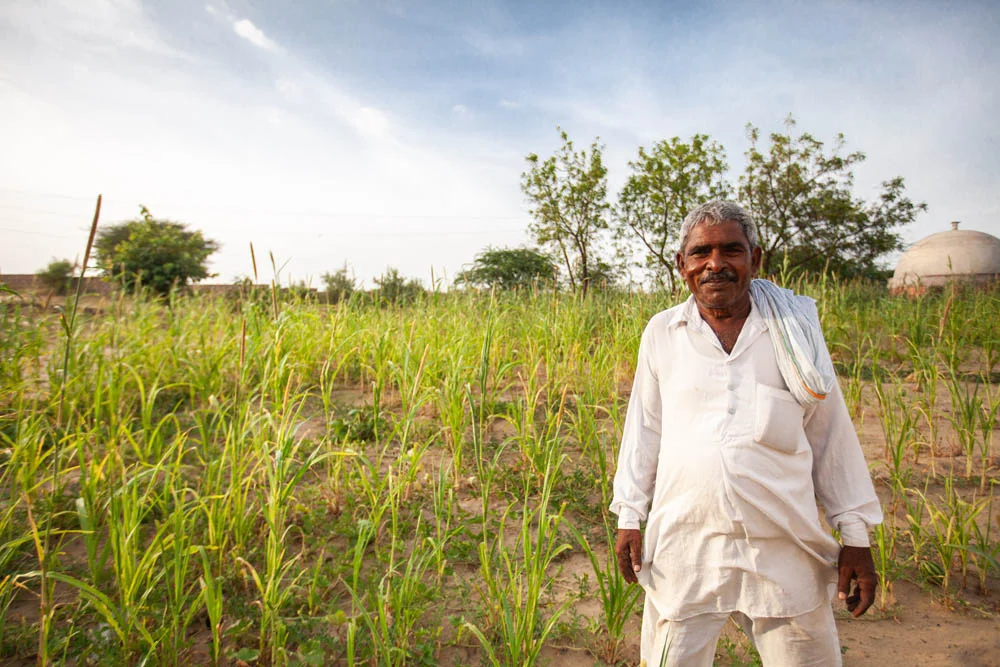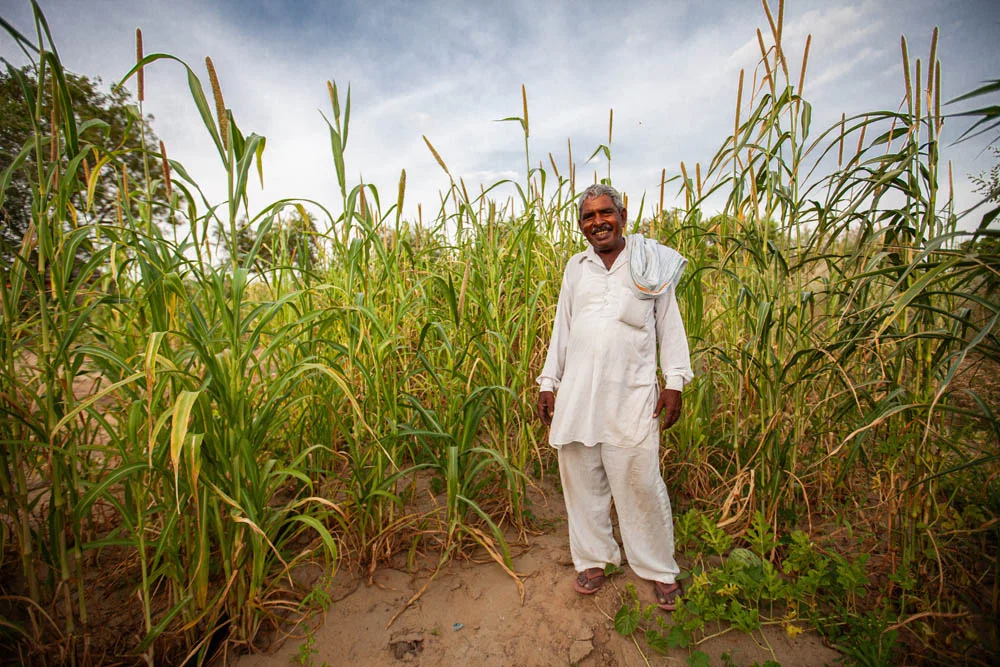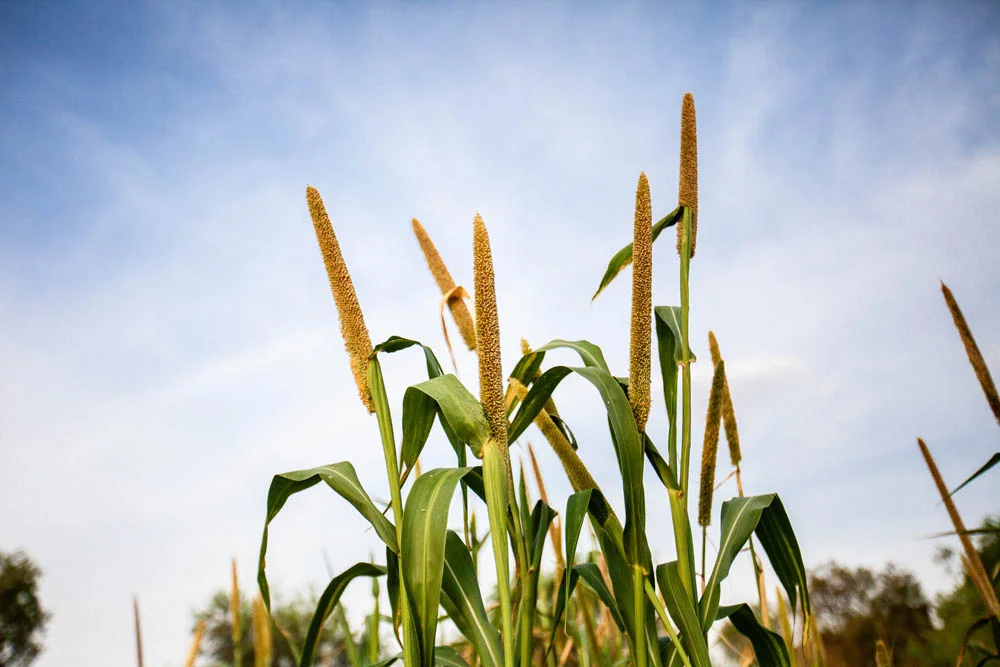In order to witness a transformation in the world, it’s essential to initiate a transformation within oneself. Embracing this notion, in the year 2013, Urmul Seemant started a model farm to practise organic and sustainable farming, aiming to showcase and inspire farmers to adopt the organic method of farming to improve their livelihoods while considering environmental sustainability.
The task was as challenging as it could be, given the desert soil, extreme temperatures, and reliance on rainfall. The ownership and responsibility of the farm were taken up by Mahaveer ji, who was a farmer himself but was working as a driver at the organisation at that time. With guidance and support from agricultural scientist Dr. Indermohan Verma, an area of 5 bigha was levelled for the farm, and multiple pits were dug up for planting. Mahavir ji began by igniting fires in those pits to remove any insects and pests from the soil, using the ash to enhance soil fertility. He started by planting Nimbu, Mosambi, Kinoo, and Eggplant in the inner pits of the farm, while Henna, Gunda, and Kumta trees were planted along the boundary to provide cooler winds to the farm.

Map of the Seemant Campus, highlighting the 3 Demo farms
Over time, a variety of plants and vegetables were gradually introduced to the farm, with some facing failure while others managed to thrive. Presently, the farm boasts a diverse range of plants including Amla, Nimbu, Kinoo, Anaar, Mulberry, Gunda, Bel Pathar, Rohida, and an abundance of Aloe Vera.
In addition to the main farm, a smaller plot spanning around half a bigha (referred to as Farm 2) has been dedicated to cultivating Moringa, Mango, and Jamun trees.

Om ji and Pritam ji sowing farm 2 with Moringa seeds
In the realm of farming, challenges are a constant presence. However, at the Seemant model farm, these challenges are consistently met with organic and sustainable solutions. This approach led to the creation of innovative solutions such as Agniastra, Neemastra, and Beejamrit, all crafted from local materials and techniques. Following their successful implementation, these solutions were shared with farmers, accompanied by training to empower them to create these solutions independently.
More recently, an issue arose with the Anar (Pomegranate) fruits developing cracks due to a Boron deficiency. This challenge was overcome by utilising a mixture of Biogas slurry and vermiwash, resulting in the resolution of the issue and facilitating proper fruiting of the plant.

Mahavir ji standing in Plot B of the Farm 3
Another experiment involving biogas slurry was conducted to cultivate pearl millet in Farm 3. The designated area of approximately 3 bighas was divided into 2 plots. In Plot A, Mahavir ji utilised the slurry, which was blended with hydrogel and vermicompost from the pilot biogas project. This project operates in collaboration with Sonu Kothari ( HNI businessman and the founder of Farm India Foundation), an initiative pioneered by desert fellow Tony.

Mahavir ji standing in Plot A of the Farm 3
And in Plot B, He did not use any slurry. Both of these plots were rainfed. The results showed a very significant growth difference within these plots.
With such innovations and sustainable practices, Urmul Seemant and Mahavir ji spread this knowledge and experience among the many farmers and have inspired many farmers to adopt organic and sustainable farming practices beneficial to the land and living of the desert.

